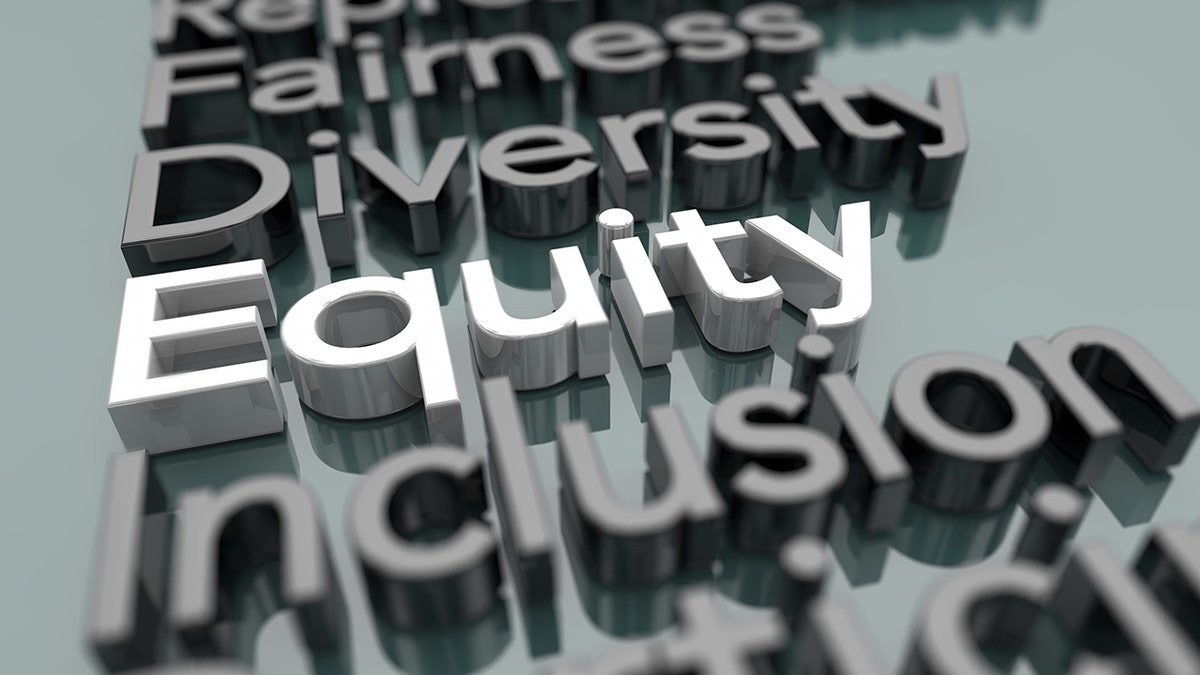NEWYou can now listen to Fox News articles!
Over the past 18 months, the Environmental, Social, and Governance (ESG) agenda has suffered setbacks in corporate DEI programs, declining investment dollars, and the collapse of the Net-Zero Insurance Alliance.
In just the last month, major banks withdrew from net-zero alliances and Meta dismantled many of its Diversity, Equity, and Inclusion (DEI) programs. ESG seems to be coming unglued. But don’t be fooled.
A closer look at what the banks have said reveals that they are still full of unrepentant ESG financiers. Many of the touted changes are superficial or cosmetic rather than indicative of an underlying philosophical shift.

Diversity, equity and inclusion initiatives have been the subject of heated opinions of praise and rebuke. (Adobe Stock)
Dozens of Fortune 500 companies (including McDonald’s and Walmart) representing trillions of dollars of market cap and millions of employees rolled back or nixed their DEI programs in 2024. ESG-labeled investment funds hemorrhaged cash over the past two years. And the incoming administration has promised to jettison DEI in federal agencies.
DEI IS LIKE A WOKE IED FOR THE LEFT’S WAR AGAINST OUR MILITARY. WE MUST DEFUSE IT
The Net-Zero Insurance Alliance has fallen apart with the mass exodus of insurance companies over the past year and a half when many state attorneys general expressed concern that participating in such an alliance might violate anti-trust and anti-collusion laws. U.S. states have withdrawn billions of dollars from Blackrock due to concerns about ESG.
These changes are welcome corrections to the flawed and deeply ideological goals of ESG advocates. The latest dominos to fall are large American financial institutions. Goldman Sachs, Wells Fargo, Citigroup, Bank of America, and JP Morgan have all withdrawn from the global Net-Zero Banking Alliance.
Even Blackrock, once a vocal advocate of ESG, withdrew from Net Zero Asset Managers Initiative. Though this may appear to be of a piece with other rollbacks of ESG, cynicism is warranted.
If you look at the press releases from these large financial institutions, you’ll find that they are unrepentant and still intend to pursue net zero goals. For example, Goldman stated: “Our priorities remain to help our clients achieve their sustainability goals and to measure and report on our progress.” Citigroup was even more blunt: “we remain committed to reaching net zero.”
I WAS FORCED TO TAKE ACTION AGAINST MY SCHOOL DISTRICT TO HALT COMPELLED SPEECH, RACIST DEI
Blackrock has been the most explicitly unrepentant. “[O]ur memberships in some of these organizations have caused confusion… and subjected us to legal inquiries… [But this] does not change the way we develop products and solutions for clients or how we manage their portfolios.” Translation: “We just want to distance ourselves from problematic PR, but we are not changing a single thing about how we do business.”
The moves by these large banks seem to imitate Blackrock CEO Larry Fink’s strategy of not using the term “ESG” because it was a political hot potato, but remaining committed to “sustainability.” Blackrock remains heavily invested in green infrastructure and renewable energy projects.
That’s fine if their clients explicitly ask for such investments. But as American Airlines learned last week, pension fund managers have a fiduciary obligation to pursue the best financial returns for their clients and they can be held liable for using the funds they manage for other ends.
NEARLY HALF OF ALL US COLLEGE STUDENTS REJECT MANDATORY DEI COURSES ON CAMPUS: STUDY
While superficial progress has been made with U.S. financial institutions withdrawing from destructive global net-zero alliances, they appear insincere when it comes to truly changing their ways. This should not be surprising given that bank personnel have not changed much. Nor do we see evidence of a change of heart when it comes to ESG.
Instead, they seem concerned about public pressure and criticism from the incoming federal administration and from state government officials. Withdrawing from these alliances also gives them a freer hand to signal net zero intentions without having to deliver on them by a fixed date.
But if ESG policy was distracting and destructive before, it is still so now. Ideological ESG priorities detract from companies’ ability to function well and benefit their contractual stakeholders. Companies have a hard enough time being profitable without pursuing various social justice priorities.
CLICK HERE FOR MORE FOX NEWS OPINION
Banks would do better to clarify their commitment to maximizing shareholder value and doing business with everyone. Pursuing long-term profit successfully benefits shareholders, workers, suppliers and customers.
Most corporations, especially the unrepentant financiers, need to clean house in their human resources departments to focus on value creation rather than racial identity politics or costly virtue-signaling on environmental and social issues. And as the American Airlines case shows, companies that fail to do so may very well be violating their fiduciary duty to clients and to shareholders.
CLICK HERE TO GET THE FOX NEWS APP


